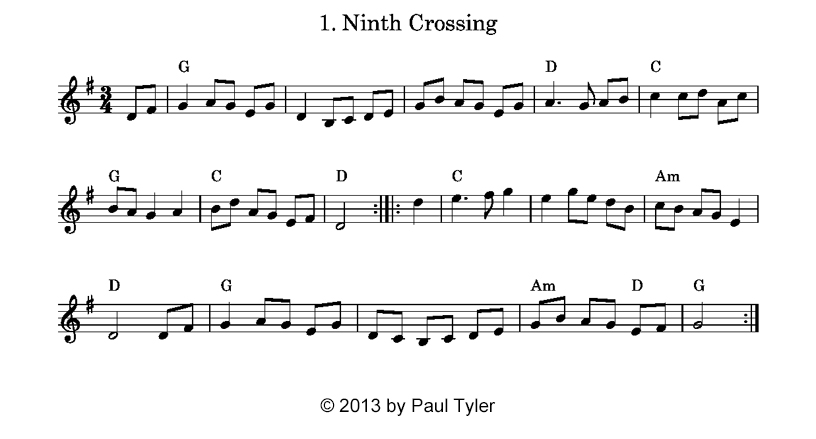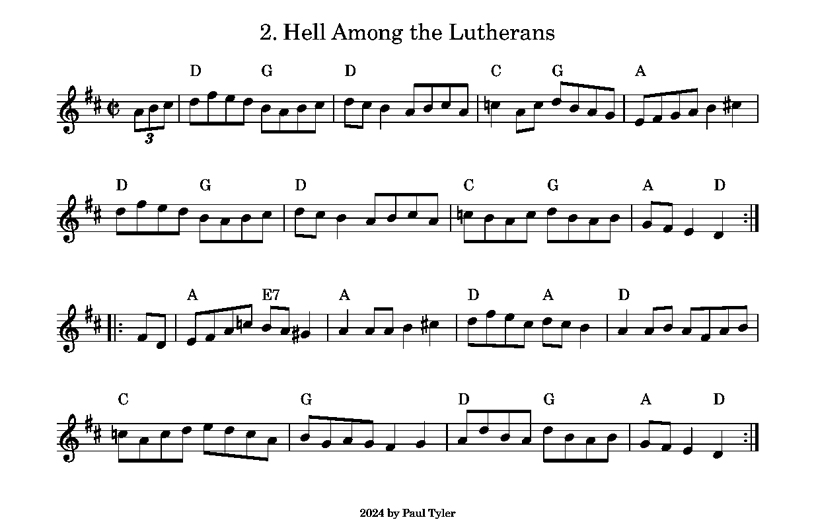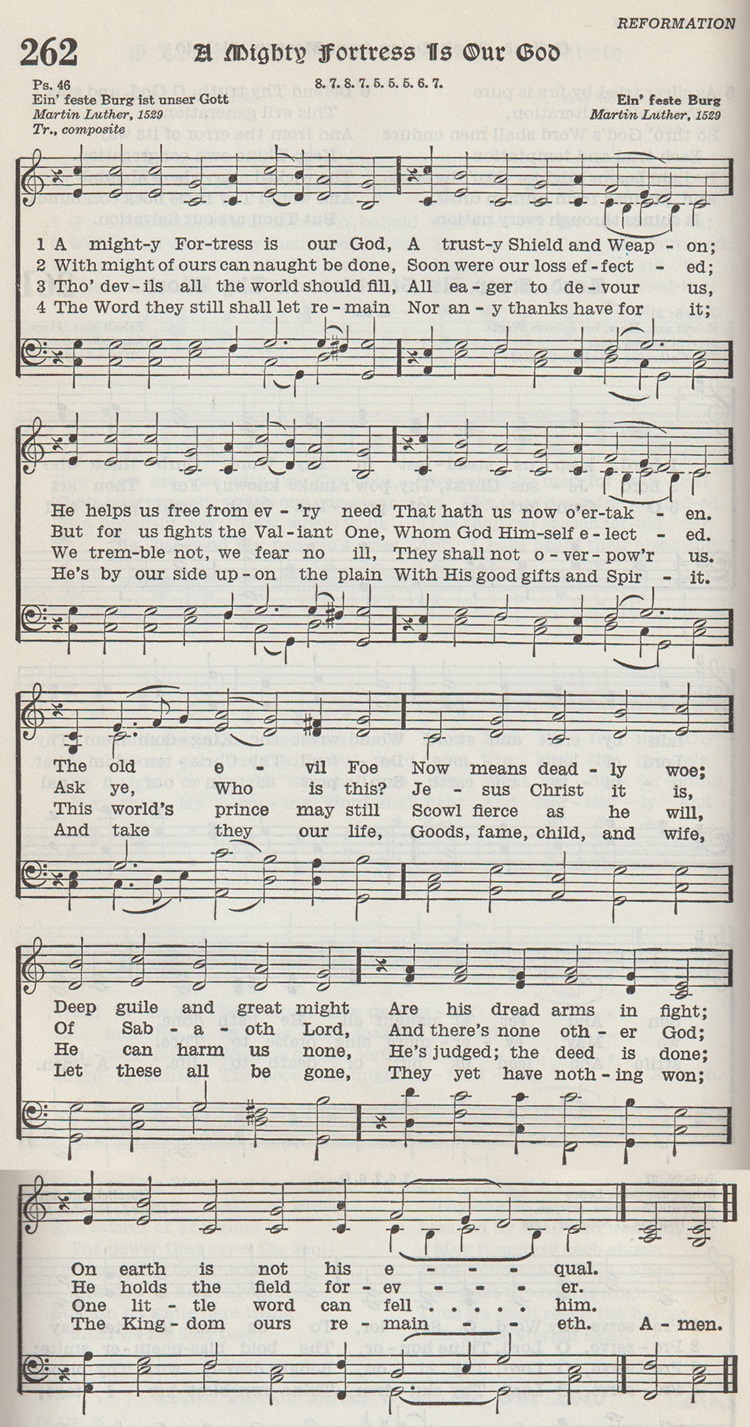I have two blogs. . . . Just as I have two worlds that I live in; two communities that I belong to. On the one hand, I am a scholarly thinker of big thoughts about God and the world, religion and science. In this world I am anchored in the church, particularly in the Lutheran tradition. On the other hand, I am deeply embedded in a community of musicians devoted to traditional fiddling and old-time country music. This community of friends, both far-flung and local, are a bit like a second church for me.
Though my two worlds are completely intermingled in my thinking and being, they seldom meet in everyday life. But they come together for this one blog post, which will appear both on DrDosido’s Blog and Must Be Now. The point of contact is the rare happenstance of me making up an original fiddle tune. I know hundreds of tunes by heart, and have played thousands when following another fiddler or accompanying a singer. Yet, in a half century of fiddling, I have only made up two completely original tunes. Both of my compositions are based on Lutheran hymns.
The first is one that I called Ninth Crossing. It came into shape, through tears of parental love, as I drove home to Chicago after delivering Maddy, my oldest, to Luther College in Decorah, Iowa for her freshman year. On our family travels that summer, we had made four round trip crossings of the Mississippi River. After the 9th crossing, Maddy began her life apart from home. The 10th crossing saw me drive home alone.
Luther College is a liberal arts college affiliated with the Evangelical Lutheran Church in America (ELCA). During my short time on campus, I discovered compelling similarities to my own college experience at Valparaiso University (class of ’73, shoulda been ’72), an independent Lutheran college affiliated with the Lutheran Church-Missouri Synod (LC-MS). And like Valpo, Luther College sent us parents back home with a (completely voluntary) closing worship service full of robust hymn singing and organ music. The service closed with a hymn I had never heard before that got pleasantly stuck in my head. Ninth Crossing was inspired by that hymn–the title of which I have forgotten–and quoted bits of its melodic and harmonic progression. But it is entirely my original tune.

Ninth Crossing Paul Tyler-fiddle & Vidar Skrede-guitar
Maddy’s educational and social experience at Luther, like mine at Valpo, shaped her into a committed and passionate citizen of the world. Her summer employment at Luther Crest Bible Camp in Minnesota got her to thinking–aka ‘discerning’–about how to be a minister of the Gospel, of how to, in Martin Luther’s words, live a “faith active in love.” Upon graduation, she went to Cambodia for a year of community service through the auspices of the ELCA‘s Young Adults in Global Mission. She came back to Chicago and worked part time as a youth minister at St. John’s Episcopal Church in our neighborhood. Then she enrolled in Wartburg Theological Seminary in Dubuque, Iowa to pursue an MDiv (a Masters of Divinity).
While she and her class struggled to survive the pandemic, they nevertheless thrived in the community of discernment, study, and theological formation that is seminary. As you will read in a bit, I envied her for living through what was a long ago possibility for me. After a year of internship at an inner city Lutheran church in Rockford, and a post graduation year of itinerant preaching and interim pastoral work, Maddy is a few weeks away from ordination into the pastoral ministry of the Lutheran Church. She will begin her first call in January at St. Paul’s Lutheran Church in Davenport, Iowa.
Some of my longest and closest friends in the old-time music community, though unchurched, have been keenly interested in Maddy’s journey. Some, but not all, always knew that I had something Lutheran about me. But it never interfered with the artistic and spiritual connections we made through playing tunes together and hanging out at music festivals and such. One of my besties jokingly suggested during a session that I make up a tune to celebrate Maddy’s ordination, and give it the title Hell Among the Lutherans. In the American fiddle tradition there are a number of tunes that use the word ‘hell’ in the title, such as Hell on the Wabash or, most famously, Hell Among the Yearlings. In contexts that require politeness, ‘Hell’ becomes ‘Trouble.’
I immediately liked the idea, but I could not force it. I am not a composer by nature or training. I waited patiently (with discernment) for inspiration to strike me full on or to sneak in through the back door. The latter proved to be the case. While driving one day I thought, for some reason, of Martin Luther’s signature hymn, A Mighty Fortress Is Our God. I’ve always loved part of that melody, particularly the opening strain. I said to myself, “That could have the makings of a good square dance tune.” And so I diddled it out as a reel in 2/4 time as I drove down the road.
I waited and let things stew a bit in the musical part of my brain. A few weeks later, I picked up my fiddle and started to work it out. It took a week or so for the full tune to take shape. The A strain quotes the opening motif and closing resolve of Luther’s first line. But it has an entirely unique turn of phrase. The B part starts with another quote from Luther’s melody, but ignores the following parts of A Mighty Fortress that I have never liked. Hell Among the Lutherans returns to Luther’s final resolve for the B part cadence. Once again, I have quoted a hymn in making up an original tune. It feels very traditional to me. (For the sake of comparison, I’ve posted a scan of Luther’s hymn at the end of this post.)

Hell Among the Lutherans played by Paul Tyler on fiddle, mandolin & guitar
Once I had worked Hell Among the Lutherans into a satisfactory tune, it dawned on me that I didn’t write it for Maddy. This piece is autobiographical. I’ve told bits of the story before and will almost certainly write about it again, but it was trouble among the Lutherans that led to a major pivot in my own journey. After graduating from Valparaiso University in 1973 with a degree in theology, I worked for a couple of years in youth ministry at an LC-MS church in the Detroit suburbs. It turned out that beyond my guitar playing and my youthful passion, I was not well-equipped for youth ministry. I began to feel the urge to go Full Monty and head off for a seminary education. In those days, an aspiring Lutheran minister would have to attest to the experience of being called. I have to admit that nobody had yet called me, but I was feeling that would be the best path for me to follow. And going off to Concordia Seminary in St. Louis was the only real choice for an LC-MS boy to take. . . . It was a good educational choice. (Women had no choice at all in the LC-MS. Still don’t.)
The year was 1974. 50 years ago. While I was discerning away in Detroit, the troubles that had been bubbling up in the Missouri Synod and its flagship seminary erupted into a full-blown hellscape. Long-threatened charges of heresy finally emerged in the official attempt to remove the seminary’s respected and beloved president. In response, most of the Concordia faculty and a huge majority of the seminarians walked out and formed Seminex, an alternative seminary-in-exile. That meant walking away from paychecks and vocational positions, actual and potential. It was a brave and formative act of conscience. Some of the effects were devastating. Some were liberating. I only watched from afar.
The “Hell” at the seminary in St. Louis soon spread to congregations throughout the Missouri Synod. Which side are you on? The congregation that employed me joined ELIM, a collective of congregations that protested the witch hunt at Concordia. Many neighboring parishes lined up in support of the authorities who sought to expel those Lutherans who thought differently from the group in power. From my marginal standing as a lowly youth minister, I was nevertheless able to see inside some of the institutional workings. What I saw was full of hatred, mistrust and division. It had nothing to do with the gospel of grace. I jumped off the path to seminary and walked away from ministry as a vocation.
I even walked away from the church community. I still attended worship services with some regularity. But it was a long time before I could commit myself to engagement with the institutional church. I was in my 40s when I had kids. Making sure they had good experiences with religious education led me back to the church. I sought out an ELCA parochial school. The LC-MS represented for me what many today are calling “religious trauma.” I, however, wasn’t traumatized. I was simply disgusted. But I was also unsure what to make of the big religious symbol at the heart of the Missouri Synod’s troubles: that is, the Bible. Since I didn’t have an answer to that, I did not want to give my kids religious home schooling.
So my kids attended Pilgrim Lutheran School. It was a good experience for Maddy, my oldest. It was not so good for her younger sibling. Maddy was marked by her kindergarten teacher, Mrs. Halter, as the kind of kid that could grow up to be a pastor. “Maddy,” she said, “is kind.” We did not steer Maddy toward Mrs. Halter’s prediction. She found her way into seminary all on her own. She has had our full support every step of the way. And we are very proud of her, as we are of her church-averse sibling.
But yes, when Maddy started talking about seminary, I was envious. I knew she would be engaged in a world of big ideas. She would be drawn into important discussions and informal bull sessions about topics I have always liked to read about and debate. My other world likes to talk about old 78 recordings and what old fiddler we learned a tune variant from. Our musical conversation is peppered with other topics such as gardening, travel, mutual friends, politics, our work lives, and other everyday concerns. We seldom talk about the ideas and theories that enlivened my life as a scholar (I was a working folklorist and adjunct anthropology professor for four decades.) As I drove her to and from college or her summer camp job, Maddy and I had long and deep conversations about the Bible as literature, about religion and science. As she was heading off to Wartburg Seminary in Dubuque, I wished I could have gone with her and joined in all the conversation and study and debate that would fill her life.
I was envious. I missed the intellectual fermentation that goes along with spiritual discernment and dialog. It was the trouble among the Missouri Synod Lutherans that took all that away from me. Ultimately, though, I have no regrets. Anthropology made all difference in how I figured out the Bible. But I still would like to be able to talk these big ideas over with a community of friends. In lieu of that, I’m working on some more blog posts.
I’ll sign off now with this wish for all my fellow Lutherans: Happy Reformation Day. I appreciate Luther’s theology of sin and grace. It’s his hellish anthropology that led to all the troubles.
N.B. Here’s the promised scan of Luther’s A Mighty Fortress Is Our God. Growing up in a country parish, we sang it in a folky manner that ignored the forced rhythms of the hymn book setting. I sense that many other Lutherans sing it in variance from the printed notation.

— Paul L. Tyler, aka DrDosido
Paul, I so enjoyed reading all that you offer in your blog post. I especially enjoyed the tune you wrote in honor of Maddy! The tune is wonderful and shall be played in many circles! I did want to hear a banjo in the recording ?.
Christine
My banjo playing is not up to this tune.>)
A riveting and thought-provoking essay. Thank you. And a very nice fiddle tune.